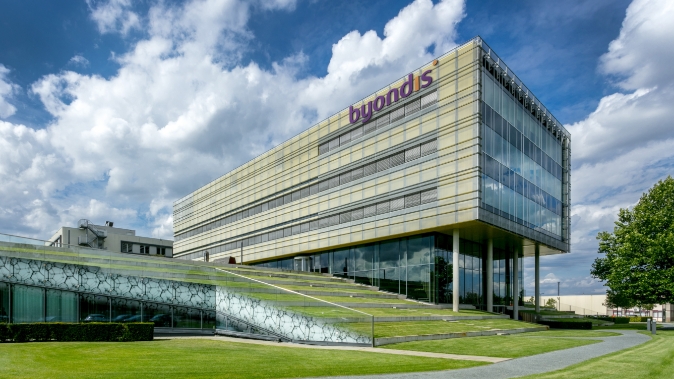Byondis cues up US, EU decisions on breast cancer ADC in 2023

Byondis has filed its HER2-targeting antibody-drug conjugate (ADC) trastuzumab duocarmazine in the US and Europe, setting up possible approvals next year and a showdown with heavyweight competitors Roche and AstraZeneca/Daiichi Sankyo.
The Dutch biotech submitted the ADC to the FDA last week and said this morning the EMA had formally started its review of the drug for HER2-positive, locally advanced or metastatic breast cancer that can't be treated with surgery.
Byondis reckons trastuzumab duocarmazine (also known as SYD985) is a "next-generation" anti-HER2 ADC, with an improved toxicity profile compared to rivals like Roche's Kadcyla (adotrastuzumab emtansine) and AZ/Daiichi Sankyo's Enhertu (trastuzumab deruxtecan).
That is down to the company's ADC technology platform, which means that the cytotoxic payload that circulates systemically after administration is lower than the already-marketed ADCs and should therefore limit side effects, according to the biotech.
The ADC is stable in the bloodstream and internalised by cancer cells, where the payload (duocarmycin) is activated, limiting healthy tissues' exposure to the drug.
[caption id="attachment_95017" align="alignright" width="180"] Marco Timmers[/caption]
Marco Timmers[/caption]
It is initially positioning the drug as a therapeutic option, "which is still efficacious when other ADC therapies have been exhausted", according to chief executive Marco Timmers. "There is a dire need to provide an alternative treatment option to these patients."
The marketing applications have been filed in the US and EU on the strength of the phase 3 TULIP trial, which compared trastuzumab duocarmazine to physician's choice of therapy after at least two prior HER2-targeting treatment regimens, while an application in the US is expected shortly.
Data reported at last year's ESMO congress showed that the ADC met its primary endpoint of extending progression-free survival (PFS), demonstrating a statistically significant improvement of 2.1 months over the control group.
The physician's choice of therapy included Novartis' EGFR/HER2 inhibitor Tykerb (lapatinib) plus Roche's chemotherapeutic drug Xeloda (capecitabine), or Roche's HER2 therapy Herceptin (trastuzumab) plus one of either Xeloda, vinorelbine, or eribulin.
In the US, trastuzumab duocarmazine has been given an anticipated review date of 12 May 2023 by the FDA, a standard ten-month review time. In Europe, Byondis has partnered with German drugmaker Medac on the commercialisation of the drug.













